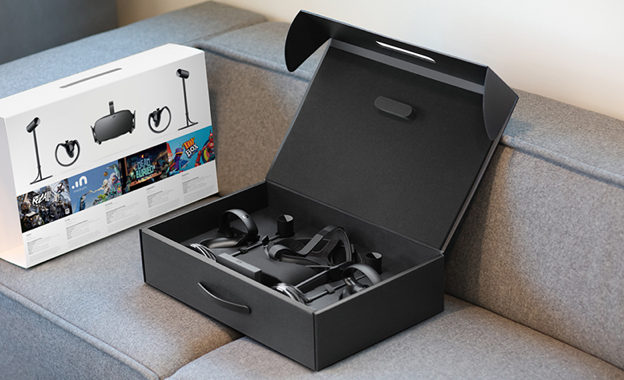Over half a billion dollars: that’s how much money Facebook claims to have invested in VR content since before the Rift launched in early 2016. Now with 2018 nearing an end and the next year of consumer VR on the horizon, they want to keep pumping that number up even higher.
“2019 represents our biggest investment to date,” said Nate Mitchell, Oculus co-founder and Head of Rift at a pre-Oculus Connect 5 preview event last week. “We do think that one of the continued big growth drivers is content, so you’ll continue to see that investment as we build a world-class content library that appeals to a wide audience of gamers. A wide audience of gamers is really important.”
Following 2018’s Marvel Powers United VR, a massive licensing deal for some of Marvel’s most respected and beloved superheroes all in one single game, that means a lot of big projects on the horizon. The likes of Defector, Stormland, whatever Respawn is working on, and more are all building up to big releases that could be some of the largest the VR market has seen to date.
“That’s right and that’s generally the direction we’ve been going,” responded Mitchell. “If you look at the 2019 titles that we have coming up and add it all up, that represents our biggest total investment we’ve had to date.”
In general, this is a stark contrast to this year and last year. Not long ago Jason Rubin proudly proclaimed that we can expect to see a new Oculus Studios game every single month — but that’s not the case anymore. Now it’s fewer releases with more time between them, but the games that do get released are much larger and more expensive.
“Before we had been trying to experiment with different types of games and genres, whether that be first-person shooters, third-person games, top-down God view,” said Steve Arnold, Head of Oculus Studios, at the same preview event. “And now that we’ve gotten to the point that we’re starting to learn what really connects to a VR audience, what feels like magic in VR, we can pour more of that money into bigger games because we have more confidence that what we’re building is right. We like to give developers as much time as possible to get to the level of quality that we’re all happy with.”
The game that came to mind immediately upon hearing that was Respawn’s title. The game was rumored to be in development over a year ago and then was officially “confirmed” and teased at OC4 last year. Which means it was likely in development for about a year before OC4, and it’s been a year since, with about a year left before release — at least, at this rate it may get bumped to 2020, who knows. That’s a solid 3+ years of development on a single title from a AAA-caliber studio.
“There’s still more that we can learn,” said Arnold. “We aren’t at the point where want to fund a five or six year long project, which is not uncommon in traditional games, but I wouldn’t be surprised if we get there in the next year or two.”

The real burning question though, the one that everyone is asking about the Rift, Vive, and all other PC VR headsets is: How are they selling? We know the PSVR has surpassed three million units, but what about Rift?
“Rift and Go are both performing really well,” said Mitchel. And…that’s about it, citing “company policy” to not divulge any other details. Oh well, I tried.
At the time I did this interview, OC5 was still about a week away. By the time you’re reading this there are likely new details out in the wild about Rift, Go, Santa Cruz, Half Dome, and all the rest of Oculus’ various projects.
But out of all of their upcoming projects that have stemmed from the large 2019 investment, which ones are you most excited about? How long do you think it’ll take to get one billion people in VR? Let us know down in the comments below!

























